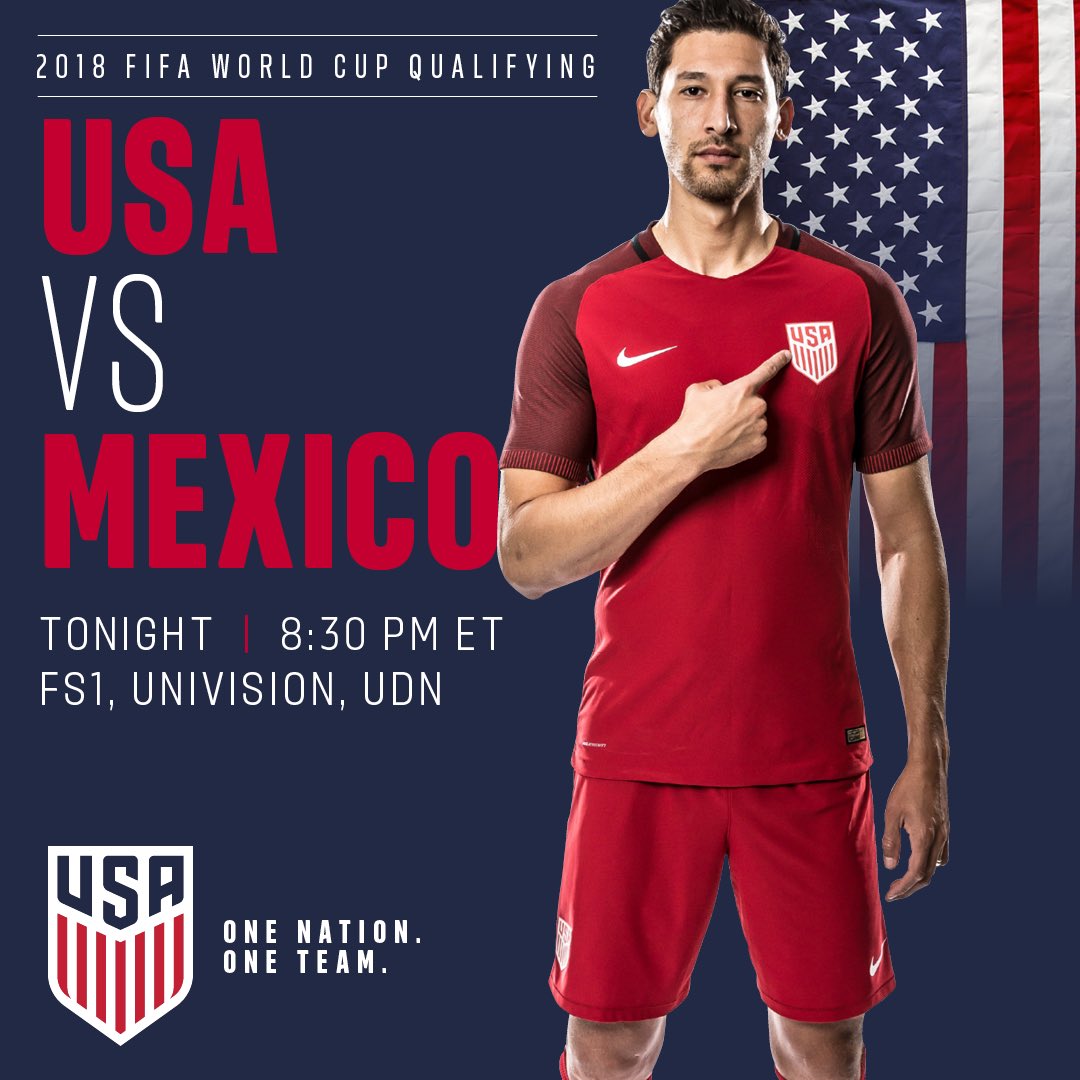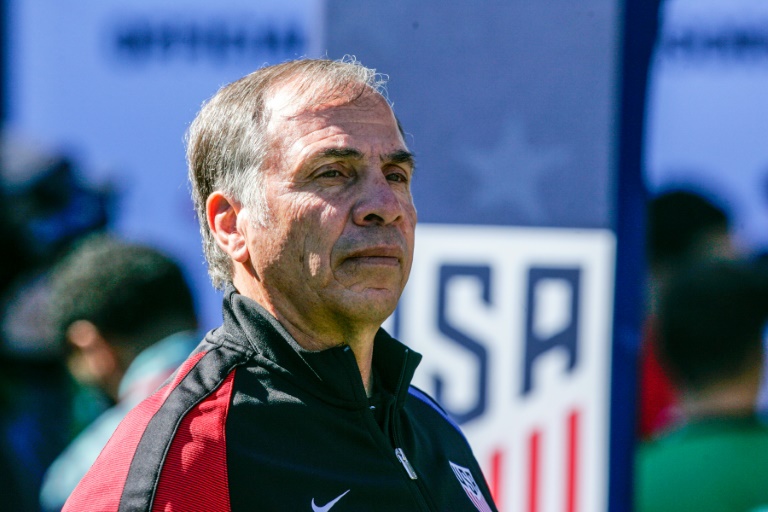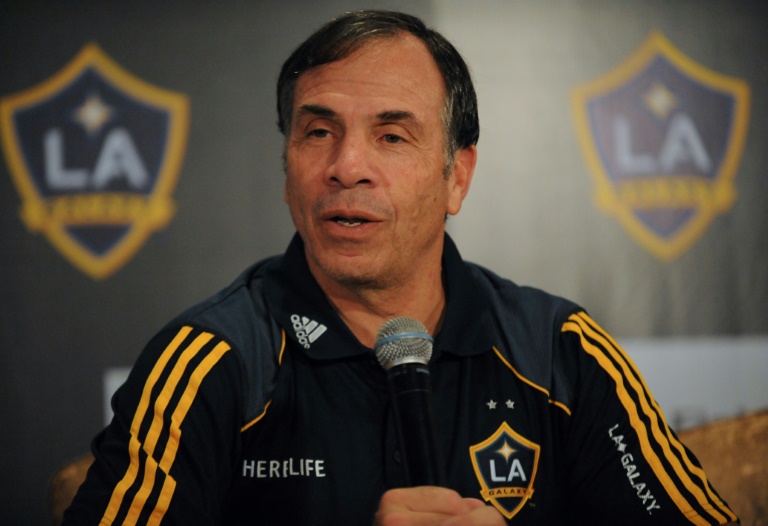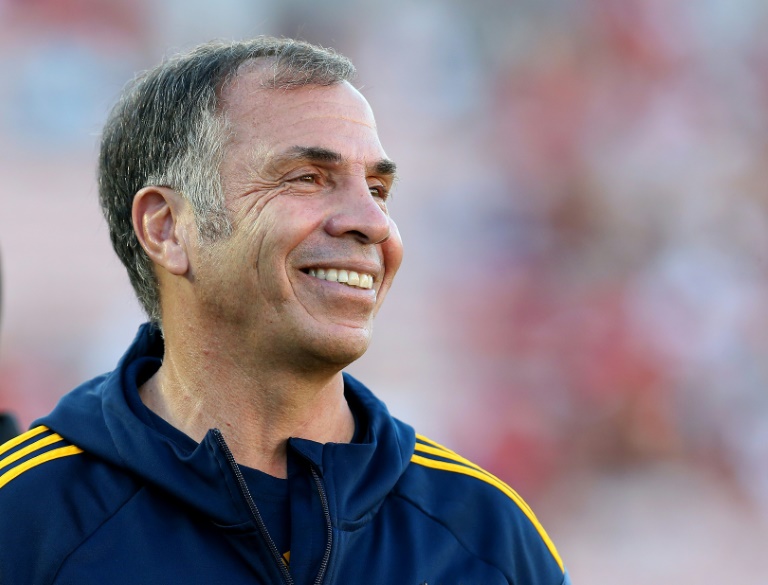As we know, the United States men’s soccer team failed to qualify for this year’s World Cup. This simple fact sent shockwaves throughout US soccer. Everyone, it seemed, has an opinion on what went wrong and what the nation has to do to improve. Few, however, are actually in any sort of position to affect change. In fact, many and most not only lack the necessary acumen to offer up meaningful critique but also only possess a range of influence extending over their like-minded social media bubble. Thus, when a major presence in US soccer speaks up, we need to listen. Especially if that voice belongs to the coach responsible for the best men’s finish ever in a World Cup as well as the complete collapse of the team in 2017.
And yet, anyone coming to Bruce Arena’s What’s Wrong With US? book looking for answers will be disappointed. What they’ll find are ideas parsed with an interminable and rambling life story of a career insider somehow seeing himself as outsider justifying the failure that ended his career. Arena has written a book intended to give “the reader insight on my evolution in becoming a coach” primarily, and only secondarily a book meant to diagnose and prescribe solutions to the issues facing US men’s soccer.
For superficial readers and fans of the US Men’s National Team, there is plenty of ‘juicy revelations.’ Each of these revelations is ultimately meaningless if not petty, yet that’s the bread and butter of the kind of sales punditry dominating US sports media especially for broadcast suits. Talking points for this kind of ‘criticism’ revel in discovering US Soccer wanted to fire Jurgen Klinsmann six months before they did so. Yet such knowledge doesn’t do anything. It doesn’t absolve the decision makers from the consequences of their actions. It doesn’t give any of the players who endured it a second chance, and it isn’t an apology to the millions of fans who have been taken for granted.
Arena failed, but there must be a space between believing Arena is merely looking “to monetize that failure” and believing it is “disrespectful to hate and despise Arena when he has done more for US Soccer than any other coach in American history.” In fact, there’s no reason both aren’t true; however, it seems more likely neither are. It is clear Arena is attempting an honest and authentic self-diagnostic. He admits early on “There’s absolutely no excuses,” but the entire book is meant as one, a demonstration of how he and his USSF cohort rose and fell.
Arena seems unable or unwilling to see his own failings or, rather, that he is utterly out of touch with the contemporary game. In exploring his coaching ethos, readers will see a tendency to side in favor of intuition over reason. Like many coaches of his generation, Arena believes in finding “the right mix of players” pitting chemistry and talent against each other, “it’s not about finding the most talent; it’s about finding the right talent that fits together to form a larger whole.” While this may seem reasonable, nowhere in his book does Arena ever state or attempt to explain what makes a player ‘right,’ how they can best fit together, or even what the larger whole should resemble.
He flirts with readers throughout the book providing just enough of a taste to give the impression he truly does know. For example, he writes: “Desire for the team to succeed, they need to separate themselves mentally from their club teams. The truth is that a national team is different from a club team. We do things differently and employ different tactics. Player roles are different. If we’re to be successful, it’s essential that the group buys into all of this.”
Often Arena sounds like he knows, but should a reader take a moment to think they’d inevitably ask ‘What kind of tactics? What are the roles? How exactly do you convince a player to buy in?’ We’re never told. Instead, when things don’t work out, Arena simply concludes, “this group should have been better than they were.” Too often, he will simply fall back on vagaries that would embarrass a senile John Madden, “I’ve always believed that you win by winning.”
This book doesn’t have to be about tactics or man management. When Arena admits “we were too often deep into guesswork,” he immediately follows it up with utter contempt for the contemporary methods managers use to avoid and climb out of such a morass. He makes it a point to chide journalists who ask “silly questions about analytics” because he believes “Advanced analytics, for the time being, are a joke when it comes to soccer.” Doubling down, Arena is certain “soccer is not a sport in which analytics are going to offer an improvement on what your eyes tell you if you just watch closely with a knowledge of the game.” Inevitably this leads him after the US will be now be absent from the World Cup for the first time in 24 years to ask “Are the players representing the United States today any better than those who did so in the past?” Arena believes his 2002 squad weren’t just a better team but would be the better team now if they were somehow plucked out of their time and plopped down in ours. This myopia is astounding.
It is even more maddening as Arena is shockingly cavalier about how rarely he looks at tape, leaving that responsibility to his subordinates. When he does get involved with examining footage, it is only out of a frat boy desire to prank a player:
“It started with a shot of Chuck Norris…wearing a cowboy hat and holding an old-style sniper’s rifle. You hear the gunfire and the video cuts to a young woman collapsing in a heap on her way to jumping off a dock into a lake. Back to Chuck, wearing a deputy sheriff’s badge, cocking his rifle to reload, and then–ba-bang!–a curvy blonde in a brown bikini sashaying her hips back and forth poolside suddenly hits the deck. And so on. Finally, by the sixth or seventh shot, the frame switches to footage of the US men’s soccer team surging into the attack against Trinidad. Then it cuts back to Chuck, reaching down to pull one more gleaming bullet out to slowly deliberately load into his rifle, hand sweating, and then he fires, and yes, it’s Alejandro Bedoya’s turn to go down in a heap. He’d tripped and fallen in our game against Trinidad, and all the guys were kidding him about a sniper. The guys were laughing so hard, they could barely breathe. Those are the times when you love being part of a team.”
You got to love the casual misogyny here. It’s almost as good as the casual racism and contempt of strategy he showed at the peak of his success when playing Korea in 2002, “They had so many guys named Lee or Kim, it didn’t make too much sense to keep repeating the same names.” And, yet, come 2017, it made sense to edit together a strained joke instead of even attempting to plan. Did Arena’s dad jokes and Boomer unwillingness to use technology lead directly to a “devastating result” which forced “a wholesale evaluation of the state of soccer in this country”? Certainly not, but it does demonstrate a greater point Arena makes in What’s Wrong With US? — getting at the heart of the problem facing US soccer. “Basically, the same people have remained in control of the sport over the past twenty years. This should not happen. The landscape of the sport has changed drastically, and there is a need for new leaders with technical experience who can bring fresh ideas to the table. There need to be some new blood and new ways of doing things.”
We never really get the sense Arena sees himself as a ‘new blood’ but he certainly doesn’t consider himself part of the establishment even though his cohort has been ruling US soccer for nearly 30 years. This settles him nicely in the all-too familiar populism currently in vogue across our nation. Even though Arena rightly asserts, “there is a huge hole in our development scheme for players between the ages of seventeen and twenty-one,” he fails to challenge the organization most at fault for that — the NCAA. As a former monumentally successful college coach, you’d think a development eye would be turned on the organization dictating amateurism to students preventing them from playing enough to be competitive.
Rather, Arena believes “the inability to make a distinction between making money and developing the sport” has held US soccer back. It’s difficult not to be sympathetic to this assertion. It sets us up to side with him when he claims US soccer and MLS “are run by people with limited technical knowledge of the sport. They have commercial, financial, and political strengths but lack a strong understanding of the game on the field, and even worse, they have not surrounded themselves with people who can make up for their deficiencies.” Here we begin to suspect we may be on shakier ground and rightly so as Arena tries to move us to the notion that the American player in North America is some kind of endangered species.
He asserts that MLS and the USSF made it “clear that if you were US born, you’d be discriminated against.” That’s not quite how they put it, but that was the gist. It was all part of an inferiority complex that was its own problem–and in many ways remains a problem to this day” because “Americans are playing less and typically are paid considerably less than their international counterparts.” What is astounding about this xenophobic assertion is it not only ignores Arena’s own participation and success within MLS but also engages in some masterful gaslighting. It isn’t Arena and his ilk who have the inferiority complex; it’s someone else, someone ‘other.’
There are no hard truths in What’s Wrong With US? Rather, there’s just grousing. It is often petty and unprofessional taking regular digs at Grant Wahl, passive aggressive swipes at Alexi Lalas and Jurgen Klinsmann, and firmly putting blame on players for not being able to intuit what Arena wanted them to do in matches. Readers get a laundry list of vague ideas at the very end of the book with no explanation (broad or detailed) about how to implement them or how they will improve the situation of men’s soccer. The answer to What’s Wrong With US? is, quite simply, ‘You, Bruce. You’re what’s wrong.’
What’s Wrong With US? A Coach’s Blunt Take on the State of American Soccer After a Lifetime on the Touchline is available from Amazon and all other fine booksellers.
200+ Channels With Sports & News
- Starting price: $33/mo. for fubo Latino Package
- Watch Premier League, World Cup, Euro 2024 & more
Live & On Demand TV Streaming
- Price: $35/mo. for Sling Blue
- Watch Premier League, World Cup & MLS
Many Sports & ESPN Originals
- Price: $9.99/mo. (or get ESPN+, Hulu & Disney+ for $13.99/mo.)
- Features Bundesliga, LaLiga, Championship, & more
2,000+ soccer games per year
- Price: $4.99/mo
- Features Champions League, Serie A, Europa League & NWSL
175 Premier League Games & PL TV
- Starting price: $4.99/mo. for Peacock Premium
- Watch 175 exclusive EPL games per season
110+ channels, live & on-demand
- Price: $59.95/mo. for Plus Package
- Includes FOX, FS1, ESPN, TUDN & more



















Football rules the W⚽rld
June 24, 2018 at 2:36 pm
Let’s be honest that if US had at least tied T&T on that final WC qualification game, none of this “experts” blame talk would continue. USFF made the wrong move to fire JK so late into the final hex in order to hire Bruce Arena as the temporary savior.
USFF should have kept JK until the end (since they failed to fire him prior to the Hex start) , but they him a favor instead by firing him because now Bruce Arena is the villain and JK simply finished as the German clown sneaking out of a USFF bank laughing out loud with a bag full of money after leaving a football federation in shatters without much accountability.
dave seaman
May 15, 2018 at 12:46 pm
The problem for the US, is the game has passed them by without the US realizing it. Folks can just look at how the game has grown/matured in leagues around the world where football is the primary sport and compare to countries where it isn’t. Viewing the technical skills of the relegation clubs in england/germany/spain and comparing it with those of 20 yrs ago, on display is a vastly improved game that would only be on offer by the elite back then.
For the US/MLS what is on display hasn’t changed. The US kids who are the top athletes still aren’t playing football/soccer all year long, they are pursued for American Football/basketball/baseball/lacrosse/ice hockey. These interruptions or removal of the best handicap skill/knowledge development of all. The only way for an US adolescent to grow into a successful footballer would be to leave the US, no different from the high school migration of overachievers we see in the US sports.
SoccerDAD
June 24, 2018 at 8:53 am
No, see my post above. The US discourages players that are late developers to continue to play soccer. In doing this, they eliminate a group that has many kids that are good on the ball, yet small physically. Watch any U12 team and you see those kids. Then come back in 2 years and see if they are still playing? Most have moved on or have become discouraged and their parents refuse to play thousands of dollars to a “elite travel team” for their kids to sit on the bench behind early developers with half the ball skill.
John
May 14, 2018 at 2:51 pm
One deep fundamental issue with US Soccer probably not mentioned is loosing HALF the US talent when the boys are only 14 (U16 some of the boys are only 14 years old at the start of the season) and 15 years old in the US Development Academies by combining U16 and U17 across the nation. Many of the boys are not fully developed at 14 and 15 years old. A Brazilian Corinthian Player Development Coach was visiting my son’s soccer team and he mentioned that they try to keep all the technically strong players until 16 or 17 years old because they have seen the worst player (has to make technical minimum) at 13 become the best player at 15 and 16 years old.
SoccerDAD
June 24, 2018 at 8:44 am
Yes. It always amazes me that on these posts there are always at least one post that really gets it. And yet our youth soccer system doesn’t change. The early identification system that starts to separate kids by age 10 into elite and non-elite athletes is fundamentally flawed. There are reams of scientific research pointing out that kids that develop later tend to become elite at higher rates than early developers. Beside that it is just basic sense that until all the kids are through puberty you can’t identify the ones that have a higher probability of becoming elite. So why create elite travel teams, academy teams, national teams, etc. until you can reasonably identify kids? This is especially galling in a country where soccer is not the automatic first choice. There is also reams of scientific research noting multiple sport athletes as having higher ceilings. So why demand that kids become soccer only at young ages? Add these two wrongs together and you begin to understand why we don’t produce great soccer players in the same ratio as our numbers would imply. Then you demand no HS soccer for these, so called elite kids, pulling them out of a system that produces great athletes in every other sport. So at a young age you have already decreased your pool of potential elite soccer players to a few hundred in each age group. If US youth soccer would actually spread resources throughout the soccer playing population instead of spending most of the resources on a few early identified athletes, you would see a vast improvement in our NT play. Currently watching England destroying Panama in the World Cup. Yep, the same Panama team that qualified over the US.
Payaso
May 9, 2018 at 7:13 pm
Checking out the book is just encouraging his foolishness and making the publisher and him money and just encouraging more of it. The clown should have been ostracized from Soccer, to keep using him and holding him up as some soccer God shows how much of a joke soccer and the soccer media in this country is, not that we really needed more examples of that.
Daniel Casey
May 10, 2018 at 9:57 am
While a bit harsh, I think yours is a valid position to have. Arena has come to represent a shard of the status quo. What’s odd is that the ‘other side,’ the MLS or business side, is no less culpable. The whole book is the pot calling the kettle black
Chris Tucker
May 9, 2018 at 9:34 am
Hey Daniel, I think you are right on here. Bruce’s time had come and gone. No disrepect to him because way back when he did bring the guys together and inspired them to some degree. Coming back in seemed like a desperate attempt at glory days of old, as if merely the badge on the chest was going to win games. His hubris was on display right out of the gate. I believe his arrogance fed right into that. These current players, minus a few, are spoiled and very different from the hungry, fire in the belly Teams of old. No one wanted to play the US. We had resolve, we had desire and we believed. We did not have the most talent, we did play as a Team, we had each others back, we had relationships. Now it’s about your brand, making money first. I’m so hopeful for our future. I didn’t always agree with Jurgen but I sure do miss him. Thanks for your work.
Daniel Casey
May 9, 2018 at 9:59 am
Thanks for reading Chris & I would say definitely check out the book. There are definitely some things in it many would agree with but Arena’s lack of self-awareness undercuts it all. The conversation needs to be had however and be taken seriously if USMNT is going to progress rather than regress